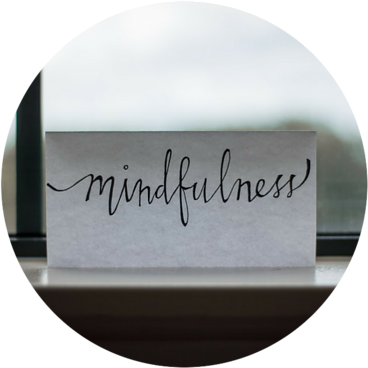 I am one of those who support the theory that stress is at the root of most trends in human behavior. Stress is triggered by two basic emotions, anger and fear. If the cause that generates them is not resolved, sadness arises, and if it lasts longer, this phenomenon can give way to depression.
I am one of those who support the theory that stress is at the root of most trends in human behavior. Stress is triggered by two basic emotions, anger and fear. If the cause that generates them is not resolved, sadness arises, and if it lasts longer, this phenomenon can give way to depression.
Chronic anger will lead to aggressiveness and violence, while chronic fear will lead to anxiety, phobia, or panic attacks. Thus, far from being prey to predators in the present world as in the Paleolithic, we can be prey to our own thoughts. Our thoughts are always occupied with a past that cannot be changed, projecting the longing for an unpredictable future.
Therefore, breathing, self-awareness, connecting with us, with the present moment, in the here and now, is where we can put our energies through Mindfulness.
What is mindfulness?
 With our eyes closed, we stop and observe what is happening inside us (our breathing, bodily sensations, the continuous flow of thoughts) and around us (sounds, smells, etc.). Just observe, without making any judgment, without waiting for any event, without rejecting anything that comes to mind, without clinging to what is happening. That’s all. As simple as that. This is mindfulness, much more effective than it may seem to minds in a rush and wanting to “get control.”
With our eyes closed, we stop and observe what is happening inside us (our breathing, bodily sensations, the continuous flow of thoughts) and around us (sounds, smells, etc.). Just observe, without making any judgment, without waiting for any event, without rejecting anything that comes to mind, without clinging to what is happening. That’s all. As simple as that. This is mindfulness, much more effective than it may seem to minds in a rush and wanting to “get control.”
Mindfulness is the quality of awareness that emerges when we deliberately focus our minds on the present moment. Attention is directed to the life experience, without any filter (accepted as it is), without formulating judgment (good or bad, desirable or not), without expecting anything in particular. In mindfulness, we can distinguish seven core attitudes:
1. Don’t judge: Avoid the emotional attack that invalidates the person who receives it.
2. Patience: Have respect and compassion for our mind, and return to the present when we see that we distanced from it. It involves accepting yourself as you are. Don’t pretend to be otherwise.
3. A beginner’s mind: Observe our experience with curiosity, as if we were living it for the first time. It will be the facilitator who will promote motivation and attention.
4. Trust: Trust and not judge. Free ourselves from the tendency to judge ourselves harshly.
5. Don’t strain: Meditate not to (ease a pain) but because (I feel the pain). If we have the session well structured, we will make the right and necessary energy emerge for each exercise.
6. Acceptance: When we do not accept ourselves, we lose opportunities to take the most appropriate actions, and we waste energy and time, which affects our physical and mental health. Do not force situations. Admit the present.
7. Let go: Do not get attached to ideas, feelings, and results.
Be prepared for challenges on the path to mindfulness.
Many people seek meditation to find peace and calm. Meditation can be relaxing, but it can also be unsettling if you are unaware of what meditation entails. A recent study confirmed what many practitioners already knew. Mindfulness creates a wide range of meditation experiences.
According to research led by University College London, more than 25% of adults who meditated regularly reported having an unpleasant experience related to their practice. Fear and distorted emotions and thoughts were more common among men and participants who used a deconstructive approach.
Before giving up your cushion, it can be helpful to compare meditation with therapy. You often feel worse before making a breakthrough, but the process is still worth it. In other words, you have to destroy your kitchen to renovate it. In the same way, your mind may seem more cluttered temporarily, but it is still making progress.
Would you mind looking at these common mental and physical obstacles to meditation and what to do about them?
Mental Obstacles to Meditation:

- Adjust your expectations. You may feel disappointed if you heard that meditation makes you blissful, but you’re more agitated than when you started. Remember that mindfulness will shine more light on anything that’s going on in your life.
- Pace yourself. Many beginners are uncomfortable meditating for more than a few minutes at a time. Brief sessions can be productive, and you’ll probably be more successful if you increase your time gradually.
- Sample different styles. If contemplating emptiness makes you uneasy, try another method. Focus on your breath or think about loving-kindness.
- Suspend judgments. Some participants in the London study were also troubled by negative repetitive thoughts. Practice looking at your thoughts without assigning blame. Try to reframe situations from a more positive perspective.
- Examine your values. If meditation is part of your religion, your faith may help you deal with unpleasant experiences. Whatever your beliefs, turn to your sources of strength and support.
- Empathize with yourself. Be gentle with yourself while you’re struggling. Accept your feelings and remember that you deserve to be happy.
Physical Obstacles to Meditation:

- Sit up straight. Meditation is easier if you practice good posture. Distribute your weight evenly over your sit bones and elongate your spine. Draw your shoulders down and back.
- Strengthen your core. A firm core will keep you comfortable during meditation and other daily activities. Do exercises like planks and leg raises to tone each muscle. Use your breath to expand and soften your abdomen on each inhalation and contract slightly on each exhalation.
- Stretch regularly. Flexibility training will make you more limber. Focus on movements that open up your hips.
- Move around. Walking meditation is a constructive alternative for anyone who has trouble sitting for too long. Pick a quiet and safe place where you can pace slowly in a circle. If you like walking in a group, invite a friend or check the schedule at a local yoga or meditation studio.
- Dress in layers. You may feel too hot or cold as your body temperature fluctuates during meditation. Wear a sweater or shawl over a t-shirt or any outfit that will let you make quick adjustments as needed.
- Eat light. Digesting a heavy meal or listening to your stomach rumble can be distracting. You may want to stop eating a few hours before each meditation session or have a light snack like tea and yogurt.
For two years, I have been working with the approach of positive psychology. I was trained on mindfulness by the Maastricht University. It came just at the right time, at the beginning of 2020 when the COVID-19 pandemic was brewing. It was uplifting and strengthened my ability to live every minute at a time. I was trained in a train-the-trainer modality, which helped me to implement mindfulness within my coaching programs.
I’ve put together a Free One Week challenge to set the foundations for mindfulness practice, and a Mastermind to achieve the practitioner level in 8 weeks.




Good day Dr. Gala, I am pleased to meet you. Well, I agree with you a hundred percent that stress is triggered by fear and anger. This is a very important post to help cope with stress. I am going to try mindfulness whenever I am in a stressful situation, I hope it will help me a lot. This is very crucial, thank you very much for sharing. Best wishes!
Hi, Kokontala,
Nice to meet you too. Thank you very much for stopping by and reading my article. To mention that mindfulness is going to revolutionize the way we conceive health. It is not easy to implement, though. If you or a friend of yours or a family were interested in honing mindfulness and achieving this high state of mind, give it a try to this FREE mindfulness challenge. Again, I appreciate your reading and comment.
Oh wow, I’ve been going about meditation exactly how you stated above. At times I found it difficult, but that’s because I didn’t know about what you shared in this post. I feel like the physical obstacle were definitely getting in my way. I didn’t sit up straight nor have a firm core during the process. Which is probably why the experience wasn’t as effective. I’m so glad I read this!
Hello, Rod Singleton,
Thank you for your comment. I am happy that my article added value to your mindfulness experience. If you are interested in learning more and achieving even more out of meditation, I invite you to join my one-week, The Mindful You Challenge.